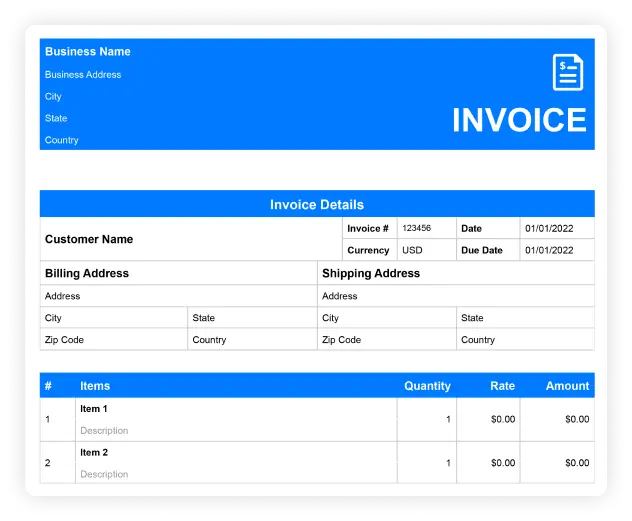Society-Maintenance Invoice Format
A society-maintenance invoice template is designed for billing maintenance services in residential or commercial societies, ensuring transparency in billing.
- Lists maintenance fees and shared expenses.
- Tracks payments for society services.
- Ensures clear communication between residents and management.

Download Customizable Transportation Invoice Format
Create Your First Customize Society-Maintenance Invoice Template With CaptainBiz
What Should Be Included in Society-Maintenance Bill Format
Society and Resident Information:
Include the society’s name, address, and management contact details, along with the resident’s information to ensure accurate billing.
Maintenance Fees and Shared Costs:
Break down the various charges, including maintenance, security, repairs, and utilities, to give residents a transparent view of what they are paying for.
Invoice Number and Date:
Assign a unique invoice number and date for tracking purposes, ensuring accurate record-keeping and future reference.
Payment Terms and Conditions:
Clearly state the due date for payments, preferred payment methods, and any applicable late fees, encouraging timely payment.
Additional Notes:
Include any relevant information, such as upcoming maintenance projects or fee adjustments, to keep residents informed.
Contribution for Repairs or Upgrades:
If applicable, include a section for any additional contributions for repairs, renovations, or society upgrades to maintain transparency in collective expenses.
So what are you waiting for?
Frequently Asked Questions (FAQs)
A society-maintenance invoice template is used to bill residents for maintenance services, shared expenses, and other society-related costs.
It should include society and resident information, a breakdown of fees, an invoice number, payment terms, and additional notes for transparency in billing.
Yes, society-maintenance invoices can include additional charges for repairs or upgrades, ensuring transparency in shared society expenses.
Listing maintenance and shared costs separately helps residents understand what they are paying for, reducing billing disputes and fostering trust.
It ensures clear communication with residents, accurate billing, and easy tracking of payments, making property management more efficient.



